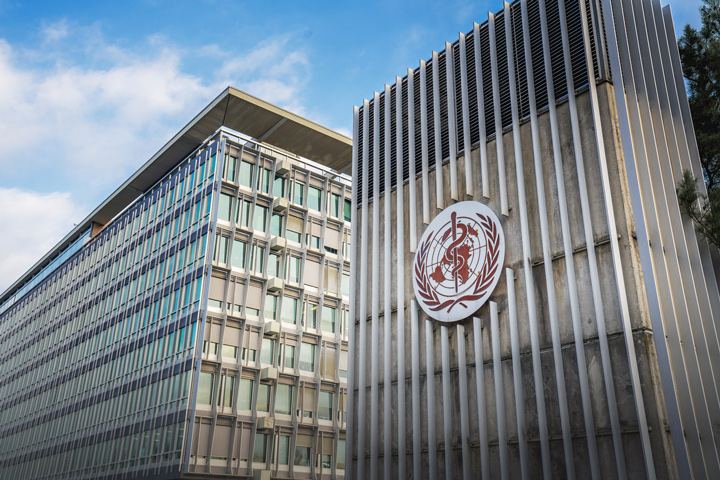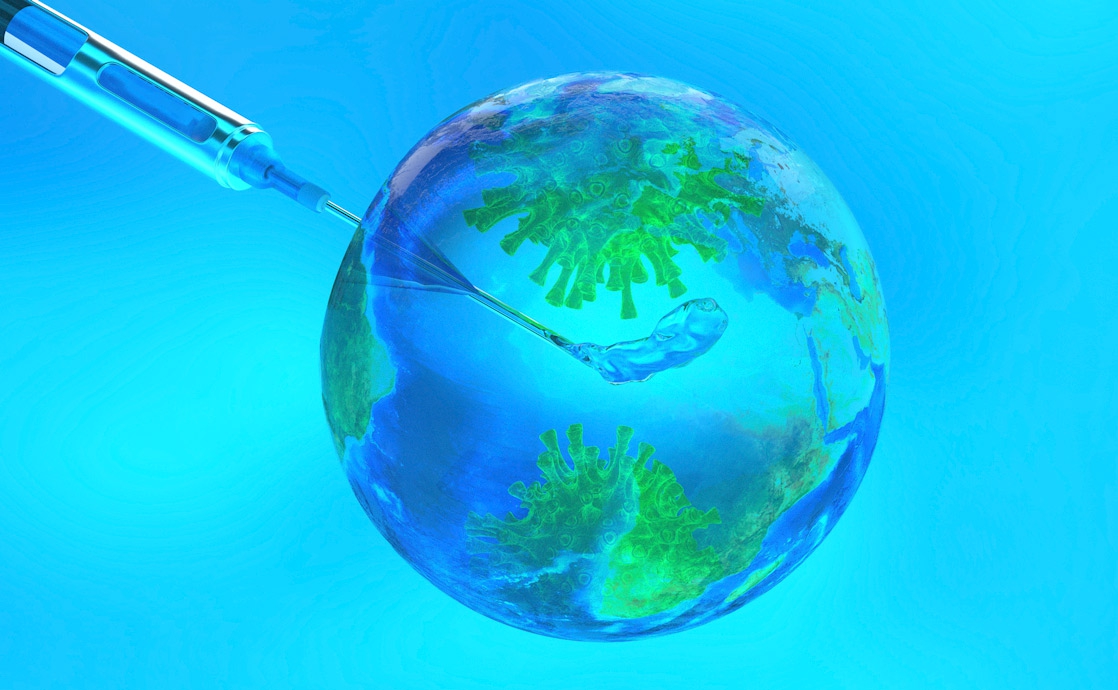The views expressed in our content reflect individual perspectives and do not represent the authoritative views of the Baha'i Faith.
The last month of a gruesome 2020 has finally arrived. What a rough year—a global pandemic has given us all good reason to grieve. Vaccines are almost here, thankfully, but are they here for everyone?
Before we ponder that pressing problem, however, let’s back up a bit, check the science, and see where we are one year into this plague:
- The global coronavirus pandemic began early in 2020, after the first known person got infected on December 1, 2019.
- This new virus, called COVID-19 (the abbreviation for COronaVIrus Disease 2019) or SARS-CoV-2 (which stands for Severe Acute Respiratory Syndrome Corona Virus 2), is a highly contagious Baltimore class IV positive-sense single-stranded RNA virus that probably originated in bats and is unprecedented in humans, which means we have no immunity.
- The virus is deadly, readily transmitted from asymptomatic people, and continues to spread unchecked. Worldwide, at least 60 million people have contracted the disease, and one year after the first known case approximately 1.5 million have died. That total, public health experts say, likely vastly underestimates the actual cases and deaths.
- In one year, the disease has caused the largest global economic recession since the Great Depression, resulting in the loss of millions of jobs worldwide.
These facts have driven the scientific community into an unprecedented global race for a preventive vaccine, therapeutics, or a cure. As a result, a hundred+ COVID-19 vaccine candidates are currently in some stage of development. But it will take more than the existence of effective vaccines to end the coronavirus crisis—we need to ensure that every human being has equitable access to them.
Vaccine Equity
The Baha’i teachings ask everyone to practice justice and equity, the two guiding principles that Baha’u’llah, the founder of the Baha’i Faith, described as the “twin Guardians that watch over men.” In his book Epistle to the Son of the Wolf, Baha’u’llah wrote about those principles, calling them “… the cause of the well-being of the world and the protection of the nations.”
RELATED: Income Disparity In a Time of Global Crisis
The central teaching of the Baha’i Faith—the oneness of humanity—asks each of us to recognize our unity and inter-connectedness with one another, to actually practice justice and equity for the entire human family. Baha’u’llah explained that “… equity is the most fundamental among human virtues. The evaluation of all things must needs depend upon it.”
Abdu’l-Baha, Baha’u’llah’s son and successor, wrote extensively on this same theme of human equity:
The Kingdom of God is founded upon equity and justice, and also upon mercy, compassion, and kindness to every living soul. Strive ye then with all your heart to treat compassionately all humankind.
How Can We Fairly Distribute COVID-19 Vaccines?
The United Nations has called the distribution of coronavirus vaccines “the defining global challenge of 2021.” Can we meet that challenge? Can we distribute these lifesaving vaccines in the universal way the Baha’i teachings recommend—“to treat compassionately all humankind”?
After all, the world will never be safe from the virus, and the global economy can never recover, unless and until developing countries receive vaccines, too.
How can we achieve that kind of compassionate equity in the human family when it comes to global pandemics? How can we fairly and proportionately distribute the new vaccines to those who can afford them and those who can’t? How do we assure, as one people on one planet, that those most at risk in all countries can get vaccinated against COVID-19 in the fastest, most efficient, and best way?
International governmental and humanitarian organizations have already started thinking about and planning for the answers to these important questions. This cooperation and cross-collaboration among the world’s countries—another one of the important central principles of the Baha’i Faith—promises to help the world overcome the pandemic. Although 182 nations, the vast majority of the world’s countries, have joined these international efforts, two world powers—the United States and Russia—have so far refused to take part. This kind of global selfishness and exceptionalism needs to stop, so altruistic, science-based efforts to protect all people can move forward.
The World Health Organization (WHO), for example, is working in collaboration with scientists, business, and global health organizations through a consortium called the ACT Accelerator to speed up and equalize the world’s pandemic response. As soon as a safe and effective vaccine is found, an international group called COVAX (which stands for COVID-19 Vaccines Global Access) will pool its resources to invest in and facilitate the equitable access and distribution of these vaccines to protect people in all countries—not just those who live in developed nations that have the economic ability to vaccinate all of their citizens.

Of course, once we have approved vaccines, these international efforts will prioritize vaccinating people most at risk—the health care workers, the older population, and those with pre-existing health conditions that make them especially vulnerable. More importantly, they’ll simultaneously do that in both developed and developing countries, for the world’s poorest people as well as its wealthiest.
That’s an incredibly essential step. If we only vaccinate those who live in the wealthier developed countries, the pandemic will continue to spread—and not only in the world’s developing nations. Inevitably, it would also continue to infect those in richer countries, as well.
Viruses do not discriminate—so neither should we. In 2021, the world will face its first big test of international cooperation in the face of a common enemy. Let’s all hope and pray that we get it right.
You May Also Like
Comments

















Of course, people are free to turn to whatever type of medicine they want.
Since this is Baha'i Teachings, it should probably be mentioned what Baha'u'llah says on the subject.
3 years later, we can see this product has caused devastation.
African countries with only 5% acceptance rate did MUCH better than ...the pharmacy-promoting countries like the USA.
Looking back, we may want to take the opposite actions from the author's recommendations.
It's amazing that when we seek through our own eyes, with eyes for Justice, we arrive at the same conclusion, in Unity.
The author of this article forgot to mention his bias towards western medicine, and forgot to mention what the Prophet founder of the Baha'i Faith speaks about compound and preventative medicine.
...
I'm embarrassed by this article and it does not represent the Baha'i Faith.